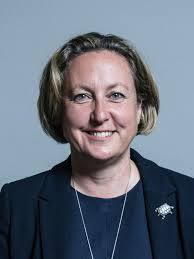The speech made by Anne-Marie Trevelyan, the Secretary of State for International Trade, on 17 June 2022.
I want to thank everyone who has worked around the clock at the WTO Ministerial Conference over the past week. Our hard work was not in vain. As the Director General said in her closing speech, we have successfully shown that the WTO is capable of responding to some of the biggest challenges of our time.
As the UK’s first Ministerial Conference as an independent member, I am incredibly proud of the active and principled role that we played. We approached negotiations with a constructive spirit, and showed flexibility to get things done.
I was pleased to convene fellow Ministers to discuss trade measures in support of Ukraine. Against the backdrop of Putin’s illegal war, it was important to demonstrate the breadth of support for our heroic Ukrainian friends. Whilst Russia may have had a presence at MC12, I am clear that it does not represent a normalisation of trade relations between the UK and Russia.
Global food insecurity was already an issue before Russia’s invasion of Ukraine. So it was right that the WTO membership gave this issue the attention it deserves by signing a new political declaration, which recognises the important role that trade can plan in improving global food security.
There was apprehension going into MC12 about whether the membership could put aside their differences and unite behind common goals. I am proud that we proved the naysayers wrong. The reality is that this Ministerial Conference has produced positive outcomes.
We know that businesses, in both developed and developing countries, wanted us to guarantee tariff-free digital trade. I am happy to say that we delivered for them. Digital trade is what allows a start-up in Malawi access to the same global opportunity as an MSME in Manchester, or indeed a multi-national in California. In the digital age, the E-Commerce Moratorium provides certainty and lowers costs for global supply chains. And, in time, we want to see this Moratorium made permanent.
Coming into discussions about the WTO’s response to the pandemic, we were clear that the solution to the access of Covid-critical goods lay beyond Intellectual Property, such as principles in applying export restrictions, increased transparency supporting trade facilitation and tariff reduction. While we pressed for the WTO Declaration to go further, we welcome the fact that members found common ground and committed to keep working to improve our preparedness for future pandemics.
The UK is a long-standing champion of equitable access to vaccines. However, we could only accept an outcome on TRIPS that was operable and did not undermine the existing Intellectual Property framework. That is why the UK fought hard to clarify the exact intent and scope behind the TRIPS Decision. After intense negotiations, we are satisfied the final text is sufficiently workable.
Let me be clear: this is not about waiving IP rights. This decision should make it easier for developing countries to export the vaccines they produce within existing flexibilities.
The Fisheries Agreement does not go as far as many members wanted (the UK included). But it does go some way to delivering what our ocean’s need and all those that are dependent on them. We made a firm commitment to continue negotiations so that we can support the recovery of global fish stocks.
The agreements we reached this week may not be perfect, but they do provide a platform on which we can continue to build. No one has worked harder than the Director-General, who has moved mountains in her efforts to bring about consensus. I congratulate her, the WTO Secretariat, Committee Chairs and Facilitators for their tireless efforts.
The UK still believes in the centrality of the WTO to the global trading system. The outcomes achieved in Geneva this week show that we are not alone in this belief. Let’s not wait until MC13 to keep making progress.
